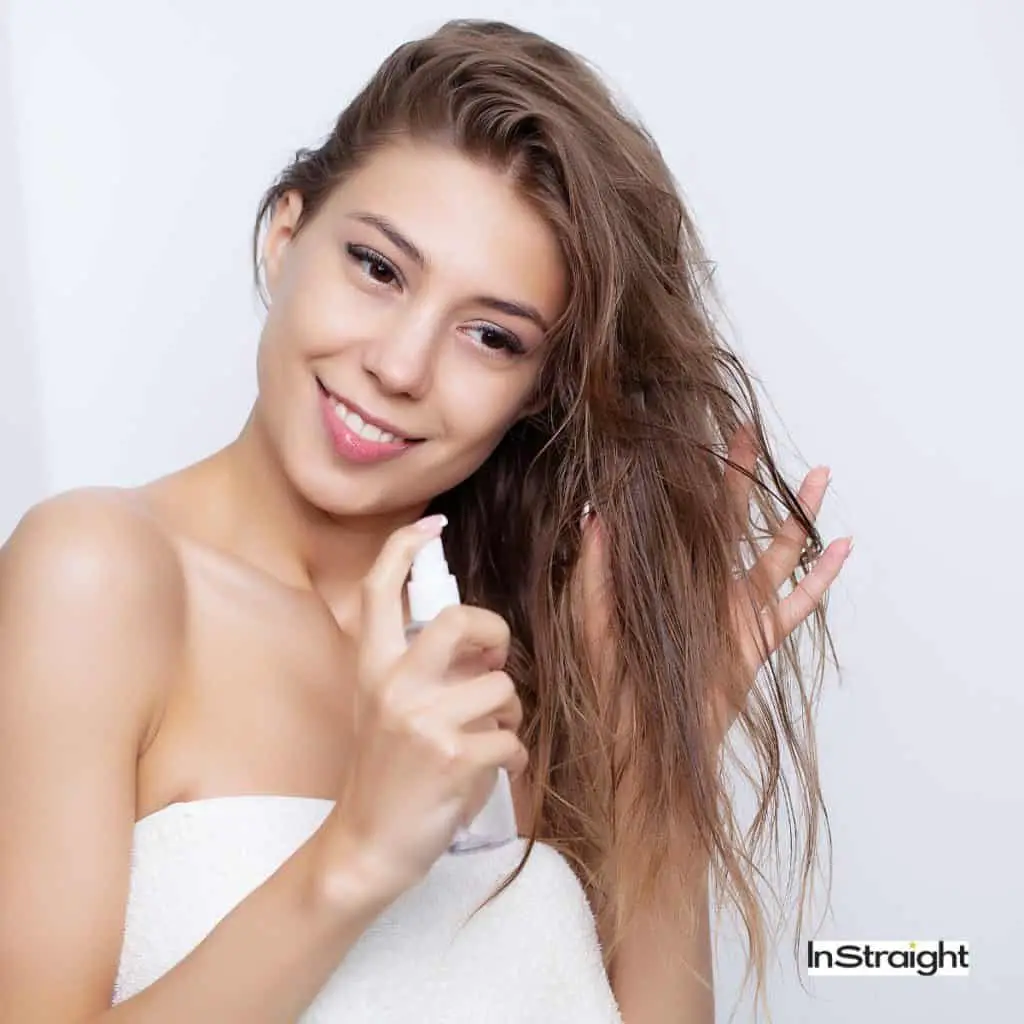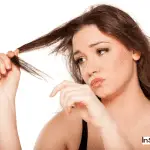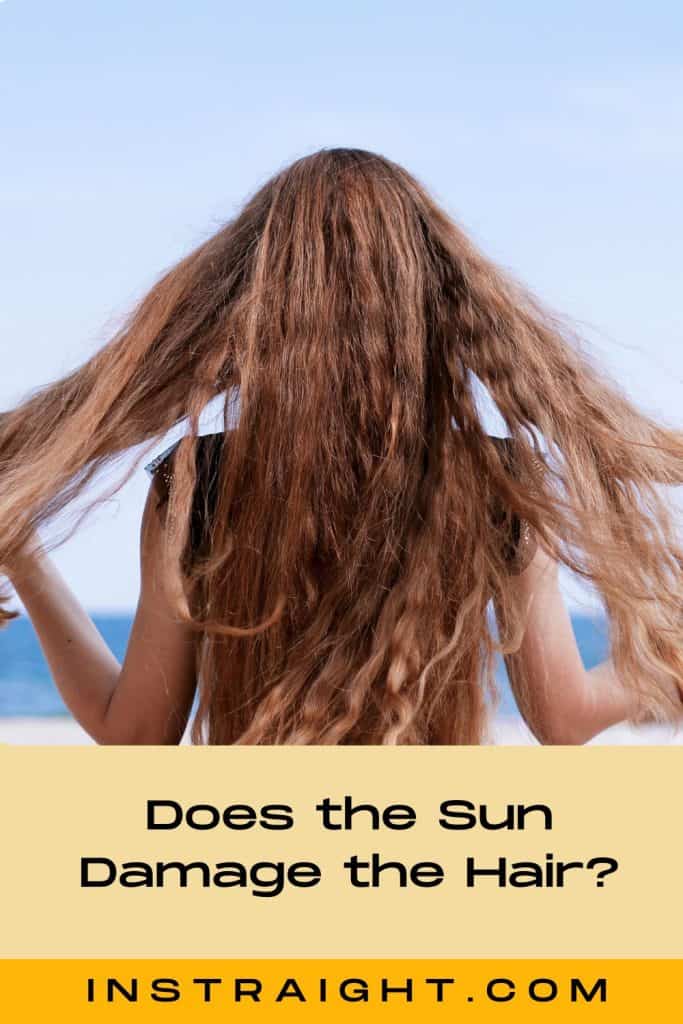Sitting out in the sun is wonderful, and I love feeling the warm rays on my back and face. The thing is, I’ve also been worried about the sun damaging my hair. So, is it true? Can the sun damage hair?
The sun can cause hair damage, especially if you spend a lot of time in the sun on a regular basis. It causes damage to the cuticles of the strands, which can lead to dry, brittle, and frizzy hair. In extreme cases, it can even cause hair loss.
In this guide, I’m going to take you through everything you need to know to keep your hair protected (just like mine).
Key Takeaways:
- The sun can be harmful to your hair
- UV rays can damage the structure of the hair shaft
- Exposure to the sun can cause dryness, brittleness, and split ends
- The best way to protect your hair from sun damage is to wear a hat or use sunscreen for your scalp
Does THE Sun Damage THE Hair?
Prolonged exposure to the sun CAN damage hair strands by damaging the cuticle. When the cuticle is damaged, it can lead to hair loss, frizziness, and split ends [1].
A couple of hours in the sun isn’t going to do any harm, but if you’re spending half the day (or more) catching rays regularly, you will find that your hair becomes DRY and brittle as a result,
Pro Tip: To protect your hair from the sun’s harmful rays, wear a hat or sunblock, and avoid sun exposure during the hottest hours of the day.
How to Protect Your Hair from Sun Damage
The big question is how you’re supposed to PROTECT your hair from the sun, and the good news is that there’s an answer. These are all of my favorite ways to keep my hair as SAFE as possible when I am out and about.
1. Use an SPF Hair Mask
You can find sun protection for your hair in the form of an SPF (sun protection factor) hair mask. The sun keeps your hair weak due to UVB rays, and this offers protection from direct sunlight.

I like to use this type of product when I know I’m going to be spending a lot of time in the sun.
2. Wear a Hat
One of the best ways to protect your hair from sun damage is to simply wear a hat. This will help to keep your hair COVERED and protected from the sun’s harmful rays.
3. Avoid Sun Exposure During the Hottest Hours of the Day
If you can, try to avoid sun exposure during the middle of the day when the sun is at its STRONGEST. This is typically between the hours of 10 am and 2 pm.
4. Use Moisturizing Treatments
Make sure to use moisturizing treatments on your hair to help keep it HYDRATED and healthy and to act as a nutritious hair oil. I like to use a hydrating hair mask at least once a week.

It helps to retain your hair’s NATURAL moisture, which can protect against the sun’s rays. Hair products and hair masks that contain coconut oil can be especially good at protecting the hair follicles.
5. Don’t Overbrush Your Hair
When your hair is dry, it is more likely to break. AVOID over-brushing your hair, and be gentle when you do brush it. It is best to brush wet hair.
The same goes for using a flat iron or curlers. Make sure you are not using them too often as heat styling tools can DAMAGE hair on their own as well as contribute to sun damage.
Check our review of the best flat iron for damaged hair.
6. Keep You Scalp Hydrated
A sunburn on your scalp can be incredibly PAINFUL. To help avoid this, make sure to keep your scalp hydrated by using a hydrating shampoo and conditioner.
Pro Tip: You can use scalp sunblock for extra protection and to help prevent sun-damaged hair.
Don’t Bleach or Dye (for at Least Three Weeks)
If you are planning on spending a lot of time in the sun, it is best to avoid bleaching or dyeing your hair for at LEAST three weeks beforehand. This will help to avoid any further damage to your hair.
How Long Does it Take for the Sun to Damage Hair?
While the sun can damage your hair in as little as 15 minutes, it typically takes longer for noticeable damage to occur.
However, if you are regularly exposed to the sun, you will find that your hair becomes dry and brittle over time as a result.
READ MORE: Does Damaged Hair Grow Back Healthy?
Frequently Asked Questions
Can Hair Recover From Sun Damage?
Yes, hair can recover from sun damage with proper care. Be sure to use a hydrating shampoo and conditioner, use a deep conditioning treatment once a week, and avoid sun exposure as much as possible.
How Can I Tell If My Hair Is Damaged From The Sun?

If your hair is dry, brittle, and frizzy, it may be damaged from the sun. You can also perform a strand test to check for sun damage. To do this, take a small section of hair and gently pull on it. If the hair stretches and then breaks, it is damaged.
Is Sunlight Good For Your Hair?
While a small amount of sun exposure is beneficial for your hair, too much sun can damage your hair. Be sure to protect your hair from the sun’s harmful rays by wearing a hat or using sunblock.
Can I Use Sunscreen On My Hair?
Yes, you can use sunscreen on your hair to protect it from sun damage. Look for a sunscreen that is specifically designed for use on hair, and apply it before you go outside.
Should You Dry Hair In The Sun?

It is best to avoid drying your hair in the sun as it can damage your hair. If you must dry your hair in the sun, be sure to avoid direct sun exposure as much as possible.
Conclusion
The sun can damage your hair, but there are ways to PROTECT it. Be sure to use a sunblock designed for hair, wear a hat, and avoid sun exposure during the hottest hours of the day.
If you are already experiencing sun damage, try using a deep conditioning treatment to help REPAIR your hair.
I hope you have found this guide helpful and that it has given you some good advice to keep your hair protected before you head outside.

Reference
1. Sebetić K, Sjerobabski Masnec I, Cavka V, Biljan D, Krolo I. UV damage of the hair. Collegium Antropologicum [Internet]. 2008 [cited 2022 Nov 8];32 Suppl 2:163–5. Available from: https://pubmed.ncbi.nlm.nih.gov/19138021
- About the Author
- Latest Posts
Sylvia is one of the most joyful people you’ll ever meet. She is a high advocate of self-love and encourages women to take care of themselves both mentally and physically. She loves girly talks especially salon talks (a little gossip doesn’t hurt) and spends most of her free time on skincare or hair care. You can find more about here HERE. Find her on LINKEDIN

